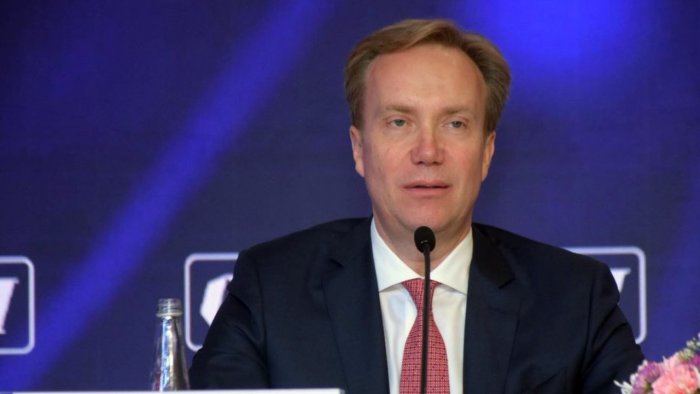New Delhi: Calling for “win-win thinking” amid increased polarisation and fragmentation globally, World Economic Forum (WEF) President Borge Brende has said that hopefully, India’s G20 Presidency will help get leaders to discuss collaborating on fighting climate change and rules around new technologies.
WEF, headquartered in Geneva, is an international organisation for public-private cooperation and has collaborations with India.
In an interview with PTI in the national capital, Brende sounded “cautiously optimistic” about finding and developing a floor when it comes to an agreement between the big countries and the world on traffic rules and collaboration.
“We will have some derisking, friend shoring, and nearshoring not just in time but also when it comes to global value chains. I hope that 90 per cent of the trade we have today will also continue in the future,” he said.
India is holding the G20 Presidency this year and also at a time when geopolitical tensions, including the Russia-Ukraine conflict, and economic uncertainties are on the rise.
To a query on India’s role, especially with the G20 Presidency, on the geopolitical front, Brende said there will be a new order with multiple drivers and a multi-polar world.
“We are between orders. We had an order after the Cold War and there will be a new order with multiple drivers and a multi-polar world. It will not be just Beijing and Washington… Hopefully, it will be an order where cooperation is at the core of it, win-win thinking, trade, also using comparative advantages that will again lead to exceptional and inclusive growth in the years to come.
“What we are seeing today is increased polarisation, increased fragmentation and this is an area where hopefully the G20 presidency of India gets leaders to sit down and agree on the areas to disagree but also the areas where we have to collaborate on fighting climate change, creating rules around new technologies,” he noted.
G20 economies account for more than 80 per cent of the global GDP and about 75 per cent of the world trade.
Mentioning Artificial Intelligence (AI), Brende pointed out that while it represents huge opportunities, there are some dangerous areas as well.
Things can get out of control and there could be algorithms that could create very negative effects. In this regard, there is a need to agree “even in a fragmented world to establish traffic rules and stop the negative impact”, he said.
WEF engages the foremost political, business, cultural and other leaders of society to shape global, regional and industry agendas. The forum is known for its annual Davos meeting in Switzerland, which is often described as the biggest congregation of the global elite.
Talking about the digital sector in India, Brende said there are hundreds of unicorns in the digital area and that the country is “really at a very important takeoff moment when it comes to having the critical mass for tech companies”.
“Not only (India is) the back office of the world on the services but also the front office and in the front when it comes to developing its own technologies, setting standards and seeing companies that are able to commercialise the technology and make good business out of it. That means, opportunities and the ecosystem that is so important,” Brende said.
This year, WEF expects almost 6 per cent economic growth for India and will be the highest growth for any big economy in the world.
PTI
